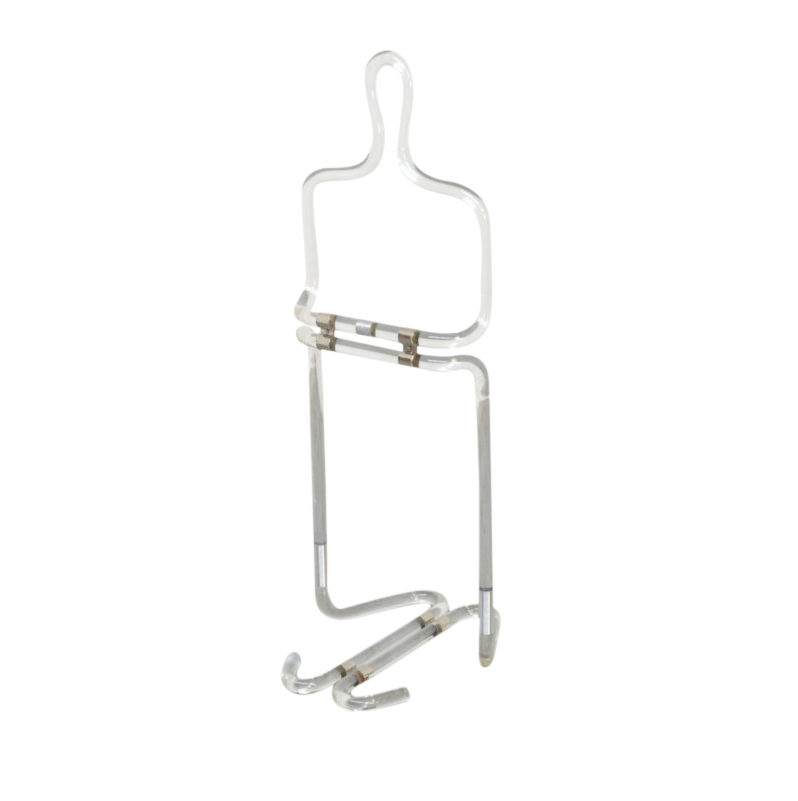About Me
Empowering Tomorrow’s Nurses: How BSN Writing Services Are Revolutionizing Academic Success
Introduction
Nursing is more than a profession—it is a calling rooted in compassion, clinical Flexpath Assessment Help expertise, and lifelong learning. At the core of every competent nurse lies a foundation of rigorous education. As nursing programs become increasingly complex and demanding, students in Bachelor of Science in Nursing (BSN) programs must rise to the challenge. They face a heavy load of coursework, clinical hours, and demanding writing assignments that require both analytical and reflective skills.
While some students struggle to meet these academic expectations, many have discovered a reliable and transformative support system: BSN writing services. Once viewed skeptically, these services are now recognized by many students and educators as tools for academic empowerment—not shortcuts.
This article explores how BSN writing services have evolved into instruments of academic growth, skill development, and personal transformation. From helping students master evidence-based writing to building confidence in communication, these services are playing a crucial role in shaping the next generation of nurse leaders.
The Academic Challenges of BSN Students
The Weight of Expectations
BSN programs are designed to prepare students for advanced clinical practice, leadership, and graduate-level education. Students are expected to:
Develop clinical judgment and critical thinking
Understand and apply nursing theories and models
Engage in evidence-based practice (EBP)
Master health policy, ethics, and public health
Produce well-written academic papers and reflections
Each of these goals demands writing skills that go beyond basic literacy. Yet, not all students enter BSN programs equally prepared.
Diverse Student Demographics
Today’s BSN cohorts include:
First-generation college students
Working professionals returning for a degree
Adult learners juggling family responsibilities
ESL (English as a Second Language) students
Online learners with limited peer interaction
For many of these students, writing academic papers—especially on complex nursing topics—can be daunting.
Understanding BSN Writing Services
What Are They?
BSN writing services are professional academic support platforms that offer custom nurs fpx 4045 assessment 2 assistance for nursing-related assignments. Unlike general essay mills, these services are tailored specifically to the nursing curriculum and may include:
Custom research papers and essays
Evidence-based practice project support
Reflective journals and narrative writing
Capstone project guidance
Literature reviews and nursing theory analysis
Proofreading and formatting in APA or AMA style
What sets these services apart is their focus on nursing-specific content, terminology, frameworks, and ethical standards.
From Transactional to Transformational
Historically, writing services were often seen as one-time solutions—students submitted their requirements and received a paper. Today, the most reputable BSN writing platforms offer mentorship-based support, such as:
Annotated drafts that explain structure and content
One-on-one guidance from nurse educators or academic writers
Revision-based learning that promotes growth
Custom outlines and templates to scaffold writing
This shift transforms the service from a transactional exchange into a formative learning experience.
The Transformative Impact of BSN Writing Services
1. Building Confidence Through Structure
For students unfamiliar with academic writing or overwhelmed by clinical nurs fpx 4905 assessment 2 duties, having a professionally structured paper to study can be eye-opening. Services provide:
Clear thesis statements
Logical flow of arguments
Correct use of citations and references
Proper integration of nursing models
By studying these structures, students learn how to construct their own ideas more effectively.
2. Enhancing Research Skills
High-quality writing services do more than just write papers—they model how to conduct research. They teach students to:
Use peer-reviewed journals
Conduct literature reviews
Identify gaps in evidence
Analyze and synthesize findings
This exposure empowers students to approach future assignments with greater independence and analytical depth.
3. Strengthening Reflective Practice
Reflection is a cornerstone of nursing education. Journals, clinical narratives, and self-assessments help students internalize experiences and grow professionally. Yet many struggle with articulating personal growth.
BSN writing services can guide students in:
Using reflective frameworks (e.g., Gibbs, Schön)
Linking clinical experiences to theory
Expressing emotions with professional language
Demonstrating growth over time
By learning from model reflections, students become more thoughtful and articulate practitioners.
4. Time Management and Stress Reduction
BSN students often face burnout from long clinical hours, part-time nurs fpx 4055 assessment 1 jobs, and family responsibilities. Writing support:
Frees up time for clinical preparation
Reduces anxiety over deadlines
Helps students avoid academic penalties
Instead of viewing support as weakness, empowered students see it as a strategic tool to maintain balance and protect mental health.
5. Supporting ESL and Nontraditional Students
Students who speak English as a second language often understand the content but struggle with academic writing. Writing services provide:
Language polishing
Clarification of complex sentence structures
Assistance with grammar and academic tone
This support helps bridge the gap, allowing students to showcase their nursing knowledge without being limited by language barriers.
Ethical Engagement: Using Services the Right Way
Empowerment, Not Evasion
Academic empowerment means gaining control of your learning—not outsourcing it. Ethical use of BSN writing services involves:
Studying completed drafts for structure and content
Using services for editing and feedback
Asking for outlines, not entire papers
Providing your own input, notes, and references
Submitting only what you understand and agree with
When used properly, writing services enhance autonomy and foster growth.
Academic Integrity in Nursing
The American Nurses Association (ANA) emphasizes integrity as a core value of the profession. Ethical academic behavior during nursing school lays the foundation for trustworthy patient care.
BSN students should treat writing support as they would a nursing preceptor—a guide who helps them learn, not someone who does the work for them.
Features of Empowering BSN Writing Services
Not all writing platforms are created equal. Empowering services include the following features:
1. Nursing-Specific Expertise
Writers are often:
Registered Nurses (RNs)
Nurse Practitioners (NPs)
Healthcare educators
BSN or MSN graduates
This ensures content accuracy and clinical relevance.
2. Transparent Learning Objectives
Ethical platforms state clearly that their work is meant for educational use only. They provide disclaimers and encourage proper citation and referencing.
3. Interactive Communication
Students can:
Communicate directly with their writers
Provide feedback on drafts
Ask questions about content and revisions
This collaboration fosters engagement and ownership.
4. Revision and Annotation Services
Rather than simply writing the paper, top-tier services offer:
Annotated drafts
Detailed feedback on writing choices
Suggestions for improvement
Opportunities for collaborative revision
These services reinforce the learning process.
Real Stories: Academic Empowerment Through Writing Services
Story 1: From Failing Grades to Honors
Jessica, a 33-year-old RN returning to school for her BSN, struggled with APA formatting and academic writing. After failing her first two assignments, she turned to a writing service for editing help. She received:
Annotated feedback on her paper
A revised draft showing proper APA use
A custom guide on citing nursing sources
The result? Jessica began writing her own papers with greater confidence and graduated with honors.
Story 2: ESL Student Finds Her Voice
Aliyah, an international student, had strong clinical skills but found it difficult to express complex ideas in English. A BSN writing platform helped her:
Restructure her EBP assignments
Translate clinical experiences into reflective narratives
Learn appropriate academic vocabulary
Aliyah’s writing improved drastically, and she now tutors other ESL nursing students.
The Role of Faculty in Academic Empowerment
Empowerment is a two-way street. Faculty members must support students in ethical and productive engagement with writing resources.
1. Providing Clear Expectations
Faculty can help by:
Offering assignment rubrics
Explaining writing goals clearly
Sharing examples of successful work
When expectations are transparent, students feel more confident in their ability to meet them.
2. Encouraging Resource Use
Rather than punishing students for seeking help, faculty should:
Recommend writing centers and tutoring
Discuss responsible use of external services
Integrate writing tools into the curriculum
This creates a safe space for growth rather than fear of failure.
Tools That Complement Writing Services
BSN students can combine writing services with free or institutional tools, including:
Grammarly or Hemingway Editor – for grammar and clarity
Zotero or EndNote – for reference management
Turnitin or SafeAssign – for plagiarism checks
Google Scholar and CINAHL – for research
OWL Purdue – for formatting and style guides
When used together, these tools offer a comprehensive academic support ecosystem.
Preparing for Future Roles Through Writing
Academic writing isn’t just about grades—it prepares nurses for:
Documentation and charting
Policy writing and advocacy
Continuing education and research
Graduate study and publishing
Professional communication with interdisciplinary teams
By becoming confident writers, BSN students grow into more effective leaders, educators, and clinicians.
The Future of Empowered Writing Support
As technology and education evolve, so will BSN writing services. Future innovations may include:
AI-enhanced coaching that provides feedback in real time
Immersive writing simulations based on patient scenarios
Virtual nurse mentors for reflective journaling
Gamified learning models that make writing fun and engaging
Institutional collaborations that embed writing services into curricula
These innovations will further cement writing services as partners in student empowerment, not just service providers.
Conclusion
In the high-stakes world of nursing education, students need every tool available to thrive—not just survive. BSN writing services, when used ethically and strategically, offer much more than assignment help. They build confidence, clarity, and competence, empowering students to articulate their knowledge and experiences with precision and professionalism.
For the nursing student striving to balance clinical practice with academic rigor, writing support can be a game-changer—not a crutch, but a compass. By transforming how students approach writing, BSN writing services are playing a pivotal role in shaping thoughtful, reflective, and empowered nurses ready to serve their communities.
more articles:
Navigating the Digital Shift: How Technology-Enhanced BSN Writing Services Are Redefining Nursing Education
Nursing Education Evolution: How BSN Writing Services Adapt to Changing Needs
The Academic Lifeline: How Professional Writing Support Shapes the Future of Nursing Education
If you need any help, please contact us at – info@designaddict.com









